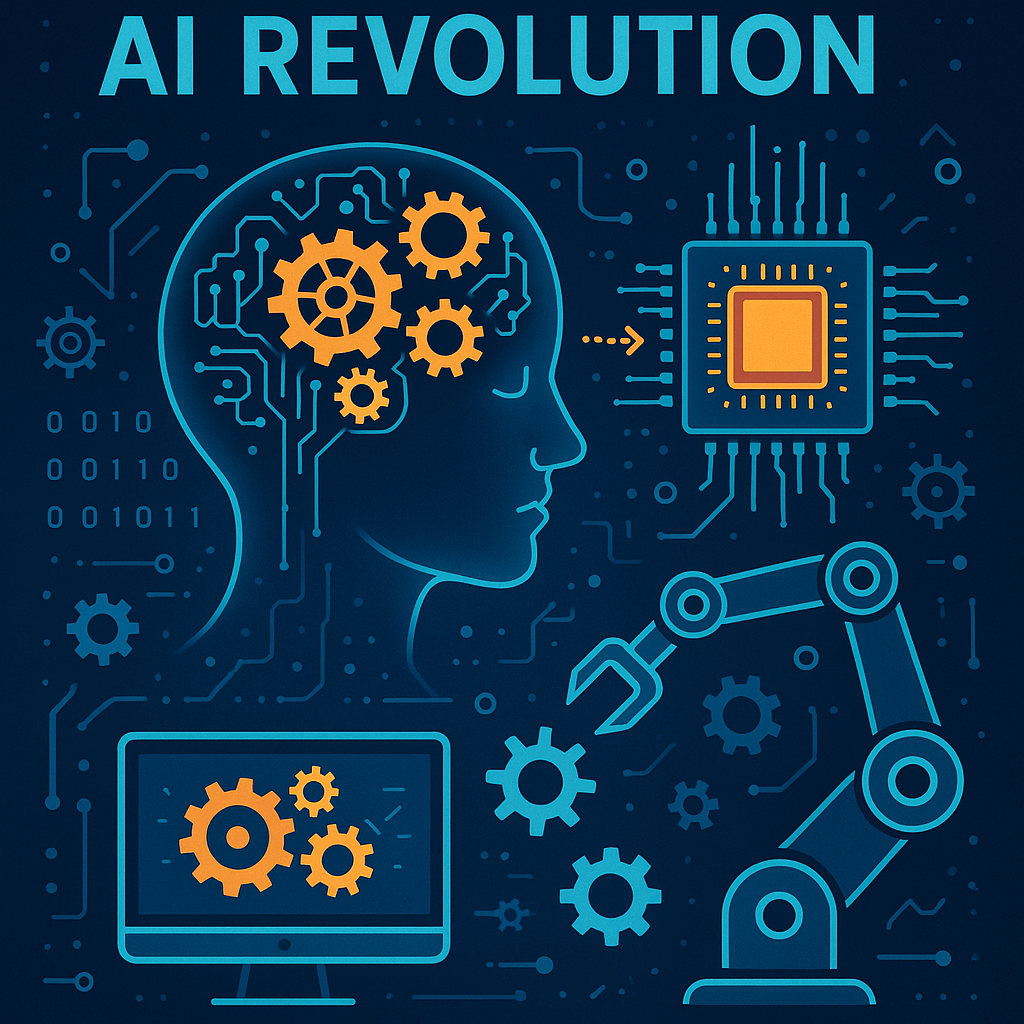The AI revolution, at the time of writing, didn’t arrive like an asteroid crept in like weather. Gradual, persistent, and deeply altering. We woke up one morning and it was here, everywhere: auto completing emails, filtering resumes, writing poetry, grading code, recommending products, forecasting churn. In boardrooms and bedrooms, AI became the silent co-pilot.
The buzz was about intelligence. Artificial, general, narrow, super. Debates flared about sentience, risk, regulation. But underneath the hype and hand wringing, a quieter question lingered: What actual value has AI brought us?
Not promises, not projections. Real value, measurable, undeniable.
The answer isn’t sexy, but it is profoundly simple:
AI’s only consistent value so far lies in automating the thought process,either for yourself, or by proxy, for someone else.
The Age of Thought Labor
Before machines moved matter, humans did physical labor. Then the industrial revolution mechanized movement. What we’re witnessing now is the mechanization of cognition.
Most of what AI disrupts is thinking work. Not the grand existential kind, but the tedious, functional kind: summarizing reports, drafting emails, identifying anomalies, parsing sentiment. The sort of mental labor that used to require a coffee, a quiet hour, and a cognitively available human being.
Take GPT-like models. At their core, they’re prediction engines for language. But what is language, really, if not a proxy for thought?
These tools don’t think in the conscious sense, but they can replicate thought patterns. They take a prompt, an invitation to think, and return an output: a coherent, context-sensitive response. Not because they understand, but because they’ve absorbed and statistically mirrored the ways humans appear to understand.
This is the essence of value: reducing the cost of generating thought shaped outputs.
Businesses as Thought Machines
Think about what a business is: an engine that converts information into decisions, processes, and outcomes. Every layer involves thought:
Strategists forecast markets.
Marketers identify personas.
Sales reps write persuasive copy.
Analysts build dashboards.
Support teams write empathetic replies.
AI plugs into all of it. It doesn’t replace the enterprise; it infiltrates its neural fabric. Suddenly, one strategist can do the work of five. One marketer can test fifty variations of copy in the time it used to take to write one. One support agent can handle twenty threads simultaneously with AI assistance.
It’s not automation of work, it’s automation of the cognitive scaffolding that supports work.
The payoff? Time compression, cost reduction, creative scaling. Thought becomes cheaper, faster, and more fluid. And in a capitalist system, anything that reduces the marginal cost of value creation will be voraciously adopted.
Automating for Self vs. Automating for Others
There’s a subtle but vital distinction here.
Personal AI automates thought for the self: writing your journal, planning your meals, brainstorming your next project.
Proxy AI automates thought for others: generating ad campaigns, producing legal summaries, building chatbots that speak on behalf of a brand.
The first is about amplification. The second is about delegation.
Both are transformations of the same raw material, cognition—but one is private leverage, the other public scalability. Together, they define AI’s gravitational pull across society: the dream of doing more mental work with less mental effort.
What We Haven’t Done (Yet)
We haven’t cracked artificial consciousness. We haven’t invented machines that want things. We haven’t solved alignment or ethics in any enduring way.
What we’ve done is mechanize routine cognition. We’ve built software that lets us outsource patterns of thought. That’s not revolution in the cinematic sense, but it’s revolution in the industrial sense.
It’s not that AI is replacing humans. It’s that it’s absorbing the low-friction parts of how we think, so that we can either think less, or think differently.
Final Thought
Every technological leap compresses some human activity. The printing press compressed transmission of knowledge. The steam engine compressed movement. The internet compressed communication.
AI compresses cognition. That’s its true value: not in mimicking us, but in letting us skip steps.
The question now is no longer what AI can do, it’s whether we’ll use the mental slack it gives us to deepen our own thought, or just to scroll faster.
